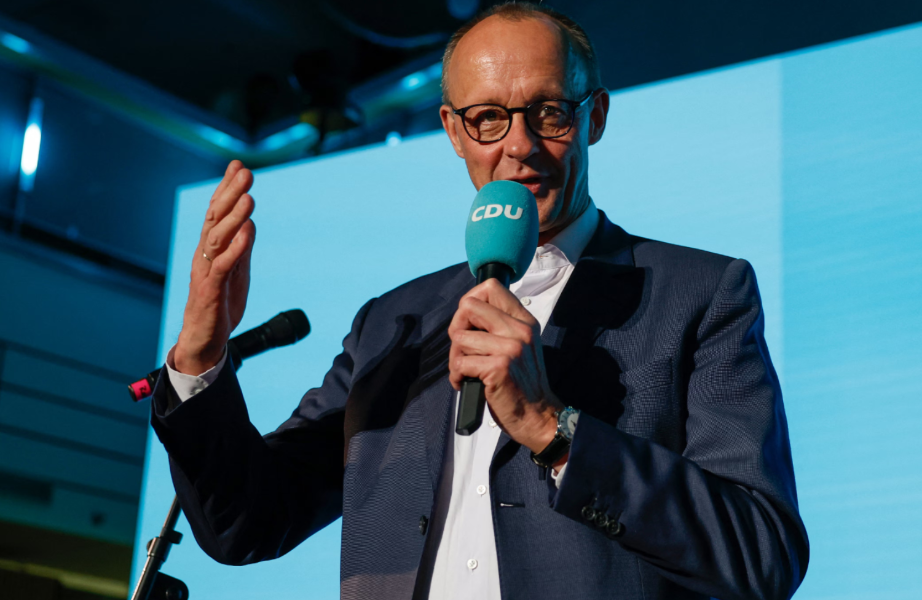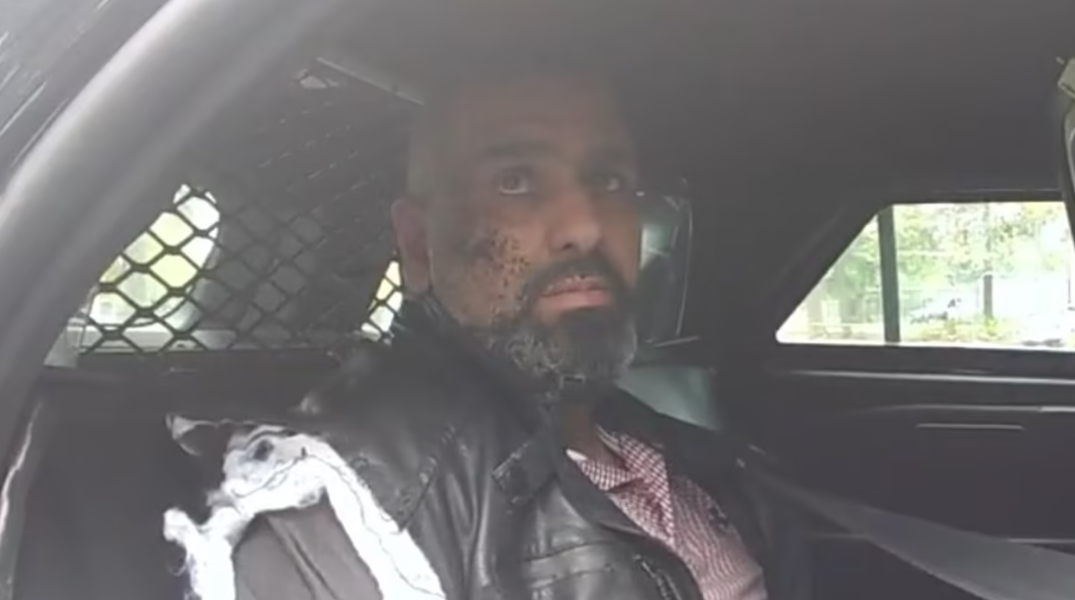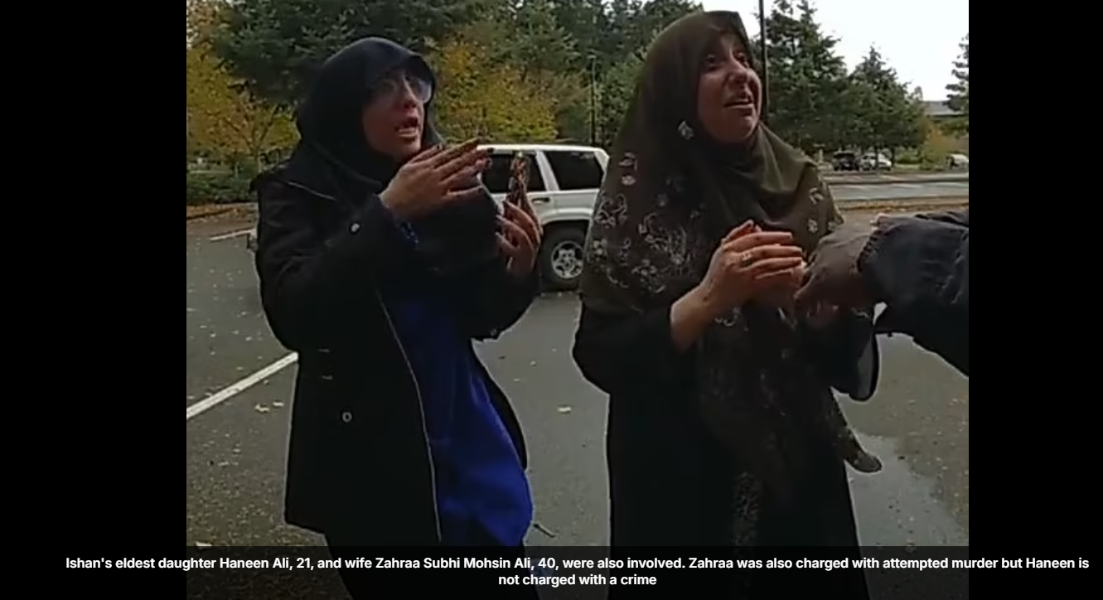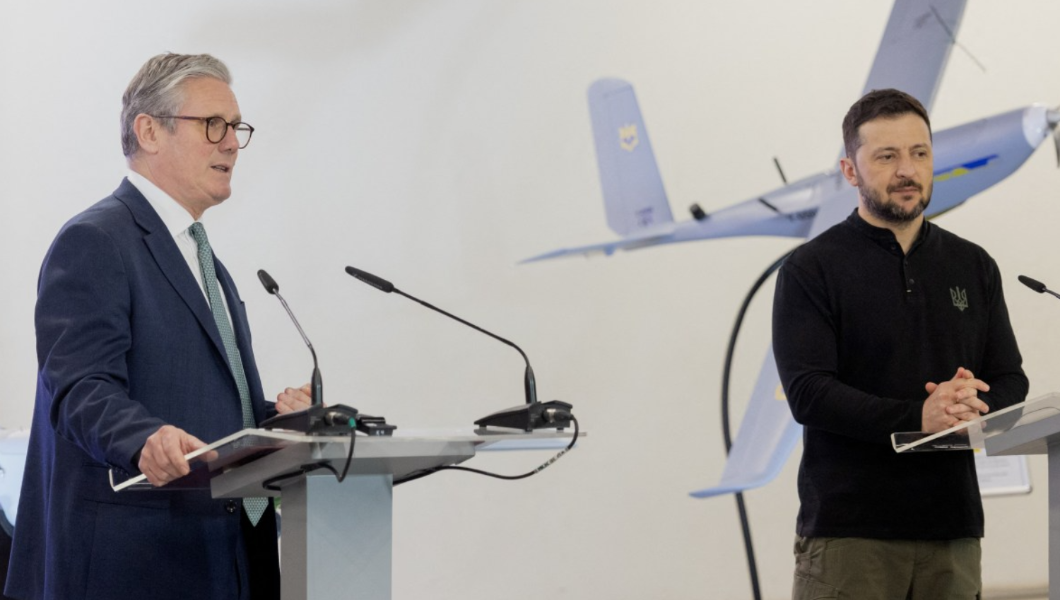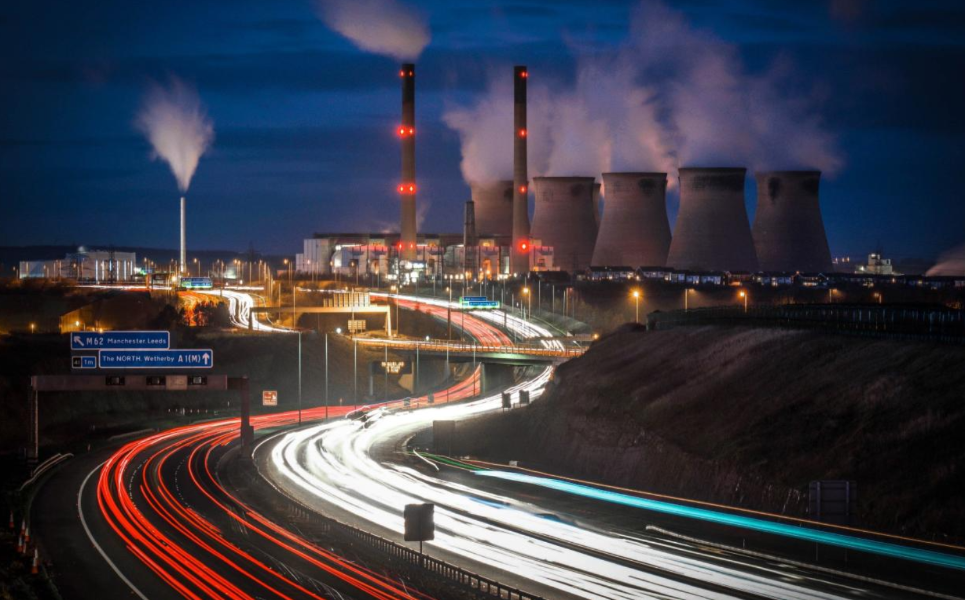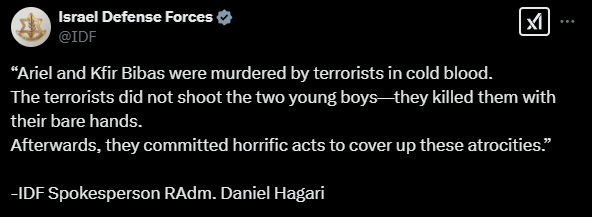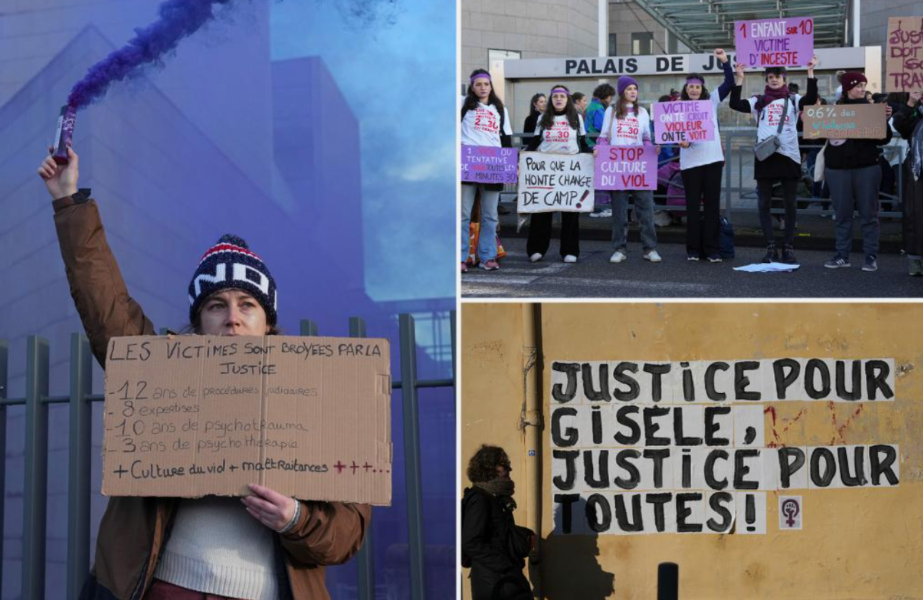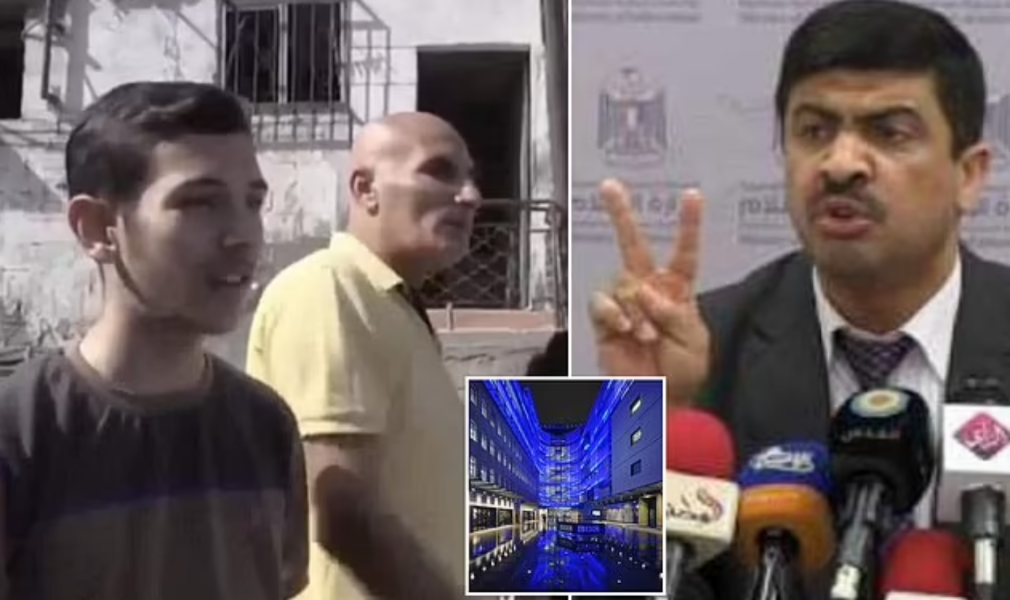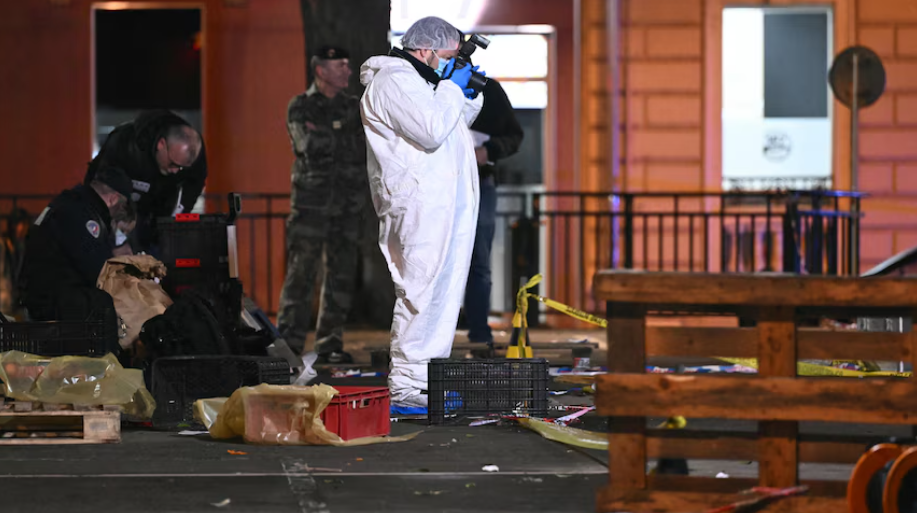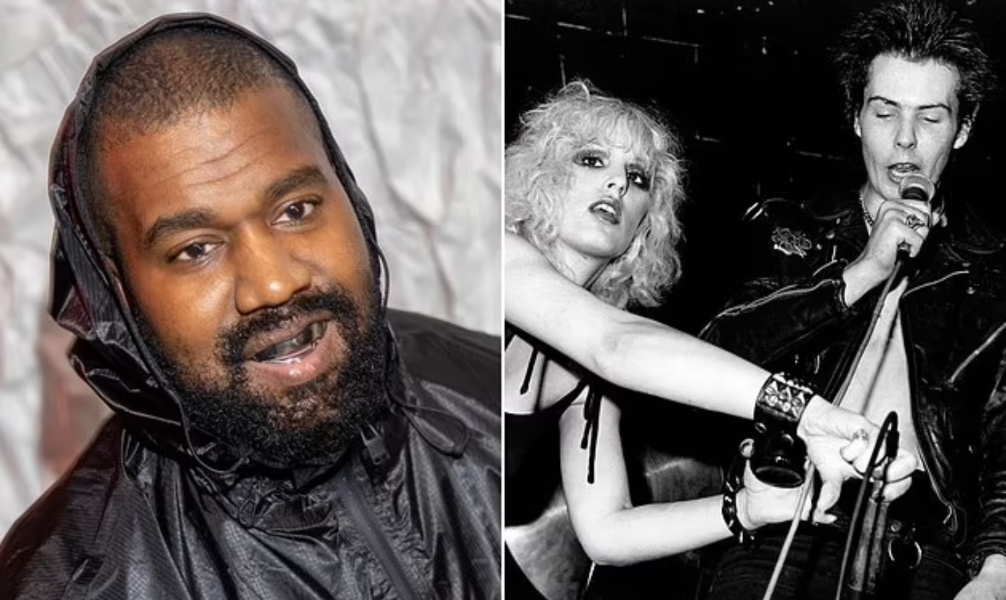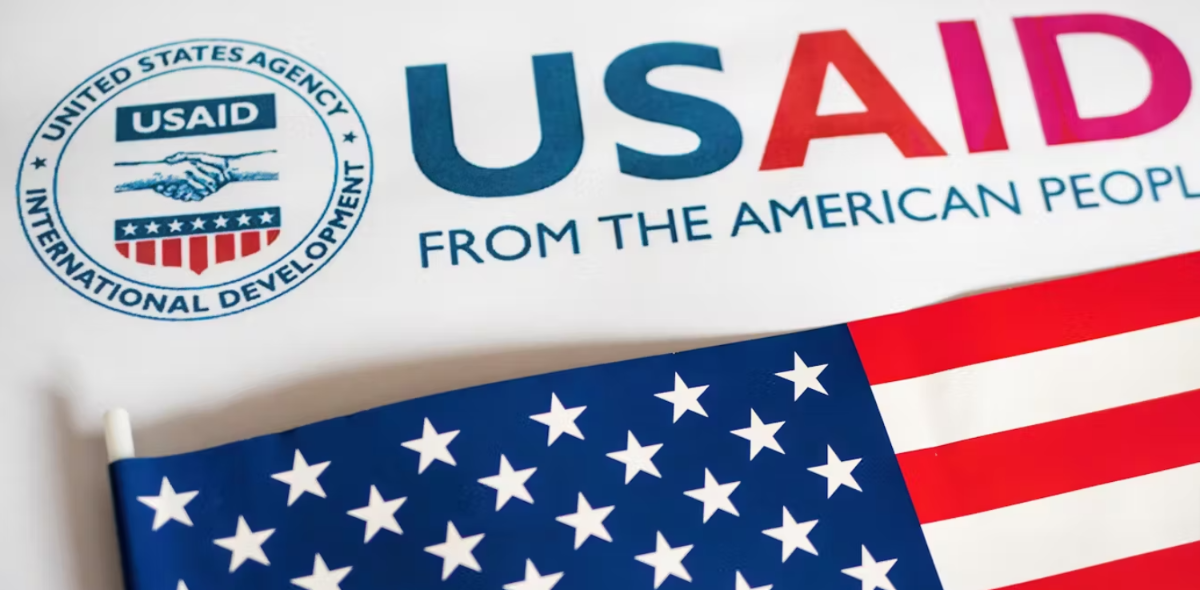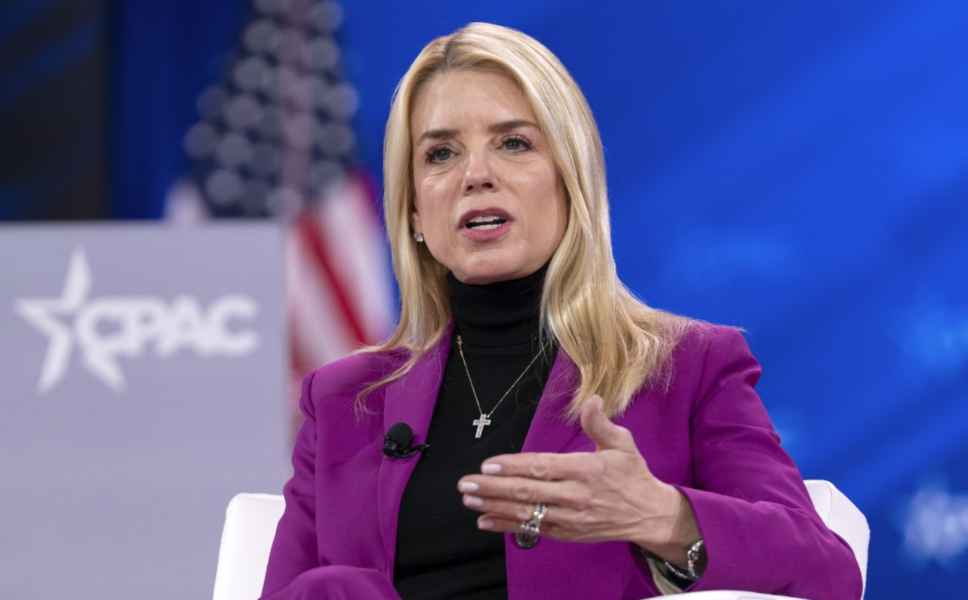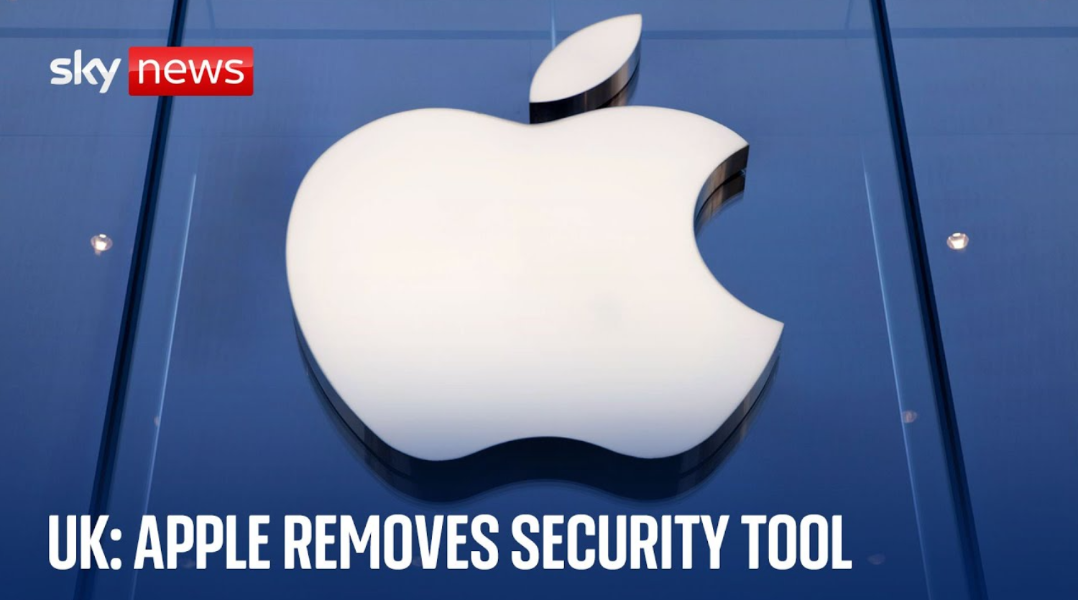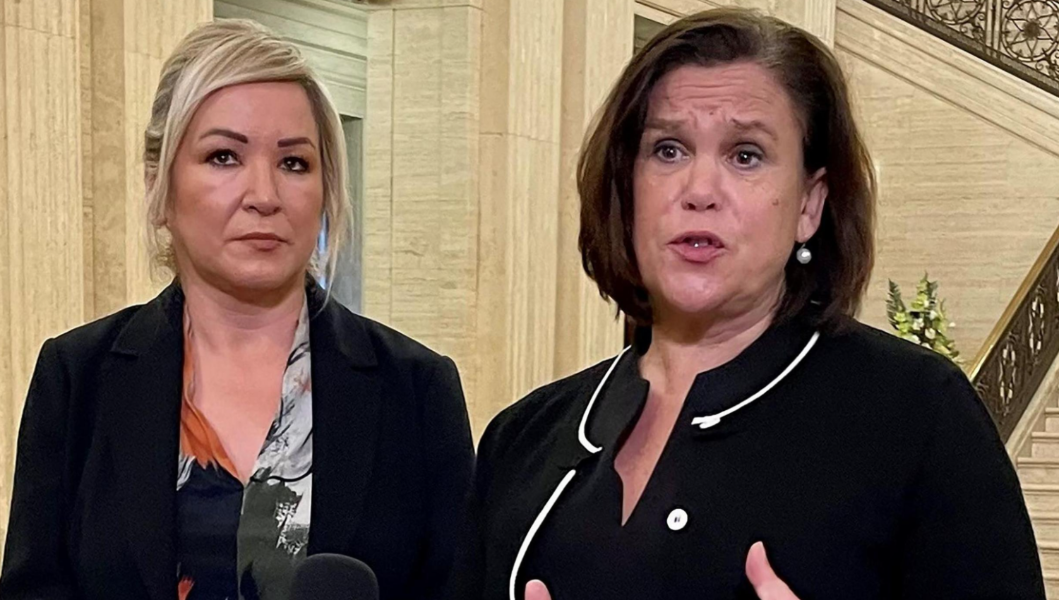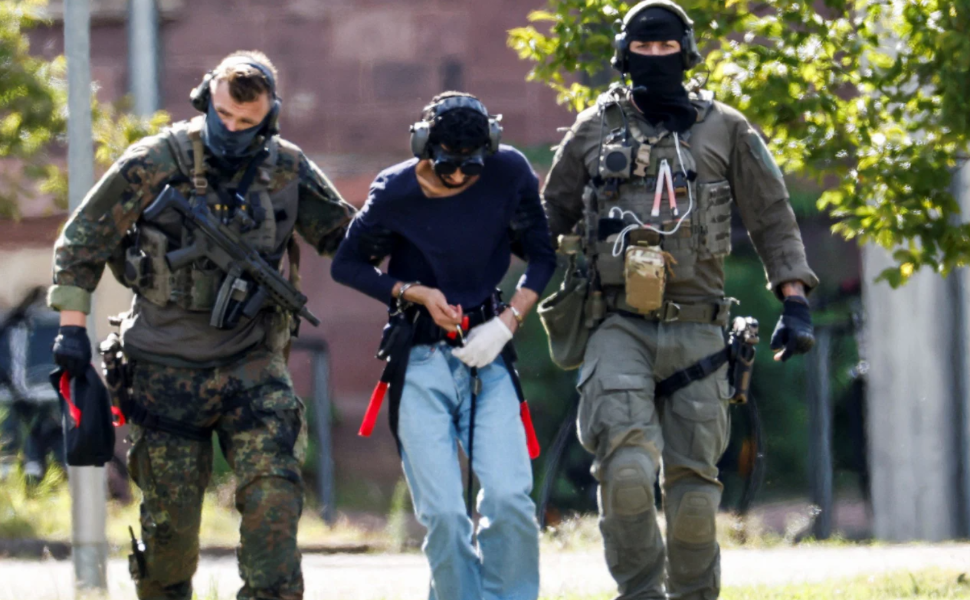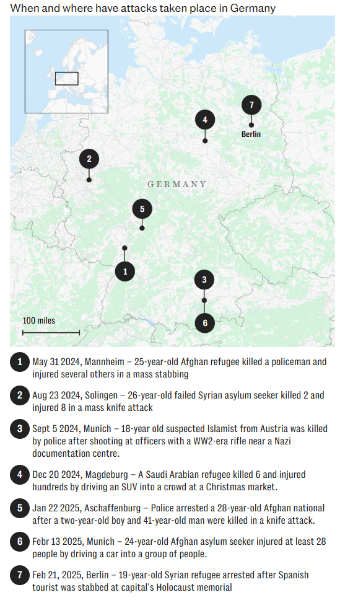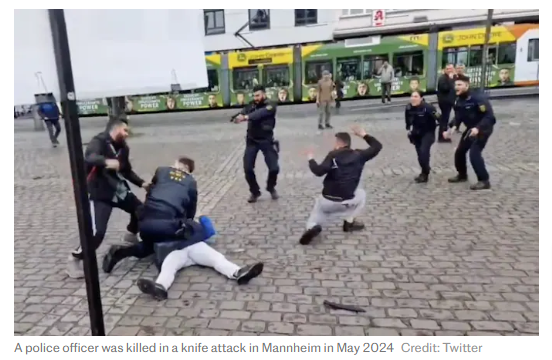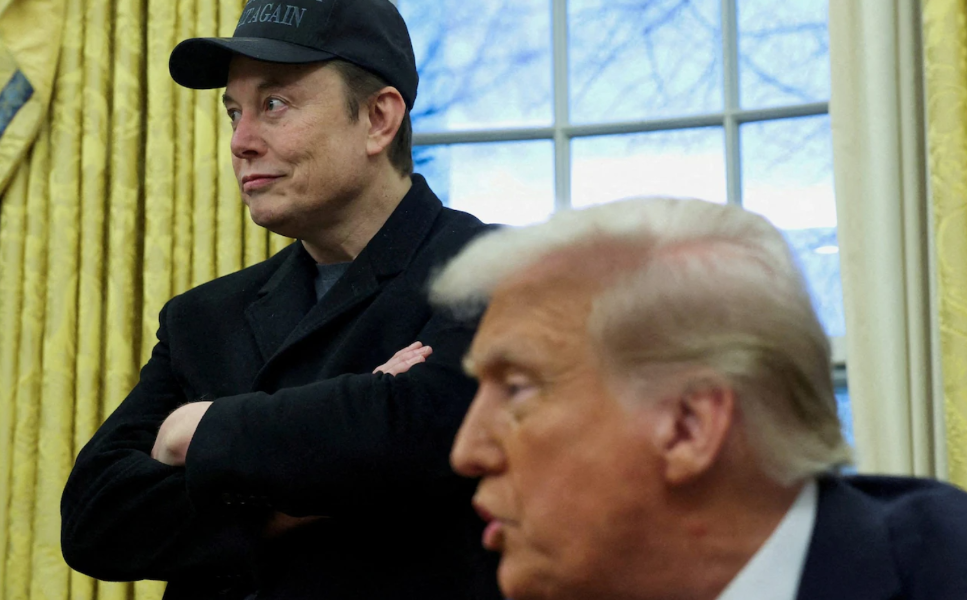-
Posts
10,807 -
Joined
-
Last visited
Content Type
Events
Forums
Downloads
Quizzes
Gallery
Blogs
Everything posted by Social Media
-
In 2008, Israeli Prime Minister Ehud Olmert presented a proposal to Palestinian leader Mahmoud Abbas that he believed could have been the foundation for lasting peace in the Middle East. Urging Abbas to sign the deal, Olmert stressed its significance. "In the next 50 years, you will not find one Israeli leader that will propose to you what I propose to you now. Sign it! Sign it and let's change history!" The proposal outlined a two-state solution, a vision that seems increasingly unattainable today. Under Olmert’s plan, a Palestinian state would have been established on more than 94% of the occupied West Bank. He had drawn up a map, which has since taken on near-mythical status, with various interpretations circulating over the years. Until now, Olmert had never shared this map with the media. In "Israel and the Palestinians: The Road to 7th October", a new documentary series by Norma Percy, Olmert finally reveals the map he claims he showed Abbas during their meeting in Jerusalem on September 16, 2008. "This is the first time that I expose this map to the media," Olmert says in the film. The map detailed the 4.9% of the West Bank that Olmert proposed to annex to Israel, which included major Jewish settlement blocs—similar to past proposals dating back to the late 1990s. In return, Israel would have ceded an equal amount of Israeli territory along the borders of the West Bank and Gaza Strip. The two Palestinian territories would have been connected via a tunnel or highway, an idea that had been previously discussed. According to Olmert, Abbas took the proposal seriously. "He said: 'Prime minister, this is very serious. It is very, very, very serious.'" The plan also sought to address one of the most contentious issues of the conflict: Jerusalem. Under Olmert’s proposal, both Israelis and Palestinians could claim parts of the city as their capital. Administration of the "holy basin," including the Old City with its significant religious sites, would be entrusted to a committee comprising Israel, Palestine, Saudi Arabia, Jordan, and the United States. The implications of Olmert’s plan for Jewish settlements were enormous. It would have required the evacuation of dozens of communities scattered throughout the West Bank and Jordan Valley. The Israeli right had already seen the 2005 forced evacuation of Jewish settlers from Gaza under Prime Minister Ariel Sharon as a traumatic event. Evacuating most of the West Bank would have been an even greater challenge, with the potential for violence. However, the plan was never tested. At the end of their meeting, Olmert refused to give Abbas a copy of the map unless he agreed to sign it on the spot. Abbas declined, explaining that he needed to consult his experts to fully understand what was being offered. Olmert and Abbas agreed to reconvene with their respective map experts the following day, with both men believing they were on the verge of a historic breakthrough. That meeting never took place. As Abbas and his team left Jerusalem that night, his chief of staff, Rafiq Husseini, recalled the mood in the car. "Of course, we laughed," he said in the documentary. The Palestinians believed the plan was doomed. Olmert, facing an unrelated corruption scandal, had already announced his resignation. "It is unfortunate that Olmert, regardless of how nice he was… was a lame duck," Husseini said, "and therefore, we will go nowhere with this." Complicating matters further, tensions in Gaza escalated. After months of rocket attacks from the Hamas-controlled territory, Olmert ordered a large-scale Israeli offensive, Operation Cast Lead, in late December, leading to three weeks of intense fighting. Looking back, Olmert maintains that Abbas should have signed the deal. "It would have been very smart," he said. "Then, if a future Israeli prime minister tried to cancel it, he could have said to the world that the failure was Israel's fault." Just a few months later, Israeli elections brought Benjamin Netanyahu to power. A staunch opponent of Palestinian statehood, Netanyahu’s leadership marked the end of any discussion of Olmert’s plan. The map, along with the proposal, faded into obscurity. Olmert still waits for Abbas’s reply, but his plan is now just another in a long list of missed opportunities to end the Israeli-Palestinian conflict. In 1973, Israeli diplomat Abba Eban remarked that Palestinians "never miss an opportunity to miss an opportunity," a phrase that has been echoed by Israeli officials ever since. But the reality is more complex. Since the historic 1993 Oslo Accords, moments of hope have repeatedly been overshadowed by tragedy and political shifts. The pattern of near-agreements followed by failure is not unique to Olmert’s proposal. In January 2001, Israeli and Palestinian negotiators meeting in Taba, Egypt, believed they had outlined the foundation of a Palestinian state. A Palestinian delegate even sketched a rough map on a napkin, signaling the progress they had made. But violence on the ground, particularly the Second Intifada that erupted months earlier, rendered the talks meaningless. Political transition in Israel also played a role—Prime Minister Ehud Barak had already resigned, and Ariel Sharon won the upcoming election decisively. Just like Olmert’s map, the napkin from Taba became a symbol of what might have been. Based on a report by BBC 2025-02-25
- 1 reply
-
- 3
-

-

-

-
Germany’s, Friedrich Merz, has called for greater independence from the United States while casting doubt on the future of NATO. In his first speech following his party’s victory in the German elections, the conservative CDU leader also took aim at U.S. President Donald Trump, criticizing the administration's stance on Europe. Merz, who will begin coalition negotiations on Monday, spoke candidly about his vision for a more autonomous Europe, expressing frustration with Washington's involvement in the German election campaign. "For me, the absolute priority will be to strengthen Europe as quickly as possible so that we can achieve real independence from the USA step by step," he declared on Sunday. He likened U.S. interference in German politics to external pressures from Russia, calling it "ultimately outrageous." His remarks come in response to statements made by Trump, whose "America First" policies have raised concerns across Europe about the stability of transatlantic relations. "I never thought I would have to say something like this on a television program. But after Donald Trump's statements last week at the latest, it is clear that the Americans, at least this part of the Americans, this administration, are largely indifferent to the fate of Europe," Merz said. The conservative leader also questioned NATO’s long-term viability as Europe grapples with shifting geopolitical dynamics. “I am very curious to see how we are heading toward the NATO summit at the end of June. Whether we will still be talking about NATO in its current form or whether we will have to establish an independent European defense capability much more quickly," he stated. Merz’s rise to power comes at a challenging time for Germany, with its economy struggling, social tensions over migration intensifying, and security concerns growing amid increasing friction between the U.S., Russia, and China. The 69-year-old, who has never held public office, now faces the difficult task of forming a stable government in a fractured political landscape. The far-right Alternative for Germany (AfD) party surged to a historic second-place finish with 20.8% of the vote, while Merz’s CDU/CSU bloc secured 28.6%, making them the largest party but without an outright majority. The election also saw the collapse of Chancellor Olaf Scholz's three-party coalition, leaving Germany’s political future uncertain. Despite the AfD’s strong showing, mainstream parties refuse to collaborate with the party, which is under surveillance by German security services due to suspected extremism. The AfD has, however, gained endorsements from figures such as U.S. billionaire Elon Musk. As a result, Merz is likely to seek an alliance with Scholz’s Social Democrats (SPD), though negotiations are expected to be prolonged and contentious. Unlike previous coalition-building efforts, Merz will not need support from the Greens to secure a majority. The newly formed BSW party, led by former Left Party leader Sahra Wagenknecht, fell just short of the 5% threshold required to enter the Bundestag, slightly simplifying the CDU leader’s path to forming a government. As Germany stands at a political crossroads, Merz's calls for European self-reliance signal a potential shift in Germany’s foreign policy. His stance on NATO and relations with Washington will likely shape the country's role on the global stage for years to come. Based on a report by The Independent 2025-02-25
-
A horrifying incident in Lacey, Washington, when a 17-year-old girl was attacked by her parents in an attempted honor killing. The shocking event, captured on police bodycam footage, occurred outside Timberline High School, where the girl had sought refuge after fleeing home. After Ihsan’s arrest, Zahraa and Haneen continued to argue with police, demanding to speak with him. Haneen insisted, "He (Ihsan) didn’t do..." before being cut off. As tensions escalated, officers warned her to calm down or risk arrest. Eventually, Zahraa was allowed to speak to Ihsan through the police car window. The details of their conversation were not recorded. In the days following the attack, police learned that Zahraa had also allegedly tried to strangle her daughter. She remained free for four days before being detained by customs officers while attempting to cross into Canada on October 22. Zahraa was arrested on a domestic assault warrant and taken into custody at the Whatcom County Jail before being transferred to Lacey Police. According to Victor Barnes, the father of the girl’s boyfriend, Zahraa fled after prosecutors moved to charge her alongside Ihsan. She reportedly took her two youngest children, ages five and three, into Canada and left them with an uncle before attempting to cross the border again. Barnes also recounted how Zahraa had allegedly tried to kidnap his son from Timberline High School weeks before the attack. He claimed CCTV footage showed her grabbing the teen and attempting to drag him away, but he managed to pull free. Following this incident, the school warned Zahraa that she would be trespassing if she returned. After learning about his daughter's relationship, Ihsan pulled her out of school, smashed her phone, and booked flights to Iraq. Barnes said, "They wanted to seclude her, and during this period of time, that's when he was threatening to kill her and was starving her." The girl told police about ongoing abuse, including mistreatment of her autistic brother. On the day of the attack, she sought help from her boyfriend’s teacher after arriving at school looking malnourished. Although officials found a safe place for her to go, she was left to find her own transportation. As she and her boyfriend walked to the bus stop, Ihsan confronted them, yelling in Arabic. A student who spoke Arabic responded, "She doesn't want to go back with you. Leave her alone." Ihsan allegedly lost control, punching the girl's boyfriend in the face and sending him "flying onto the concrete." The girl was then placed in a headlock by her father. "It's not right… you are not supposed to do this," she told police he said as he tried to strangle her. Her boyfriend and other students desperately intervened, with her boyfriend punching Ihsan in the head until he released her. Zahraa then allegedly joined the attack, also attempting to choke her daughter, but was overpowered by the students. The girl managed to flee inside, screaming, "My dad was trying to kill me!" The boyfriend suffered a boxer's fracture in his hand while trying to rescue her. The girl was taken to Providence St. Peter Hospital, where doctors observed scratches on her neck and signs of strangulation. Court documents stated that she "believed she lost consciousness three to four times during the incident" and woke up with dirt pressed into her face. "She thought she was going to die." Initially, Ihsan was not charged with attempted murder and was released on October 24 on a $150,000 bond. Zahraa, however, was charged with attempted murder and held on a $500,000 bail. It wasn’t until November 5—nearly two weeks later—that attempted murder was added to Ihsan’s charges. He was re-arrested, and his bail was raised to $1 million, keeping him in jail. Barnes described the emotional toll on his son, who witnessed his girlfriend nearly being murdered. "He's just trying to keep it together... trying to not feel so tensed up all the time." The girl remains in hiding, fearing further harm from her family. Authorities continue to investigate the case while ensuring the girl's safety. Based on a report by Daily Mail 2025-02-25
-
The number of deaths linked to weight-loss and diabetes medications such as Ozempic and Mounjaro has risen to 82 in the UK, according to newly released figures from the Medicines and Healthcare products Regulatory Agency (MHRA). This growing toll has sparked fresh concerns regarding the safety of these increasingly popular injections. According to the data, 22 individuals died after using these drugs for weight loss, while 60 fatalities were associated with their use in treating type 2 diabetes. Alison Cave, the chief safety officer at the MHRA, emphasized the importance of careful medical oversight, stating, “The decision to start, continue or stop treatments should be made jointly by patients and their doctor, based on full consideration of benefits and risks.” The popularity of these medications has surged, with approximately 500,000 Britons currently using them. Many individuals have reported significant weight loss, with some shedding up to 22.5% of their body weight within 18 months. In response to this trend, the NHS is preparing to offer Mounjaro to severely obese patients. Wegovy, a higher-dose version of Ozempic initially designed to treat diabetes, was introduced to the NHS in September last year. However, access remains restricted to specialist weight-loss clinics in certain parts of England. Around 4.1 million people qualify for Wegovy under NHS guidelines, which require a body mass index (BMI) over 35 along with associated health conditions. Meanwhile, the private sector allows access to those with a BMI of 30 or above, making the treatment available to approximately 15 million adults. The latest MHRA figures indicate that 18 deaths were directly linked to Mounjaro, while 29 were associated with the use of Ozempic, Rybelsus, or Wegovy, all of which contain the active ingredient semaglutide. An additional 35 fatalities were linked to Saxenda and Victoza, which contain liraglutide. Among the reported cases is Susan McGowan, a 58-year-old Scottish nurse who passed away last year after taking two low-dose injections of Mounjaro over a two-week period. Investigations have also uncovered nearly 400 hospital admissions related to the use of weight-loss drugs. The NHS has issued a warning on its website, advising against taking anti-obesity medications unless they have been prescribed by a medical professional. “Never take an anti-obesity medicine if it has not been prescribed to you. These types of medicines may not be safe for you and can cause serious side effects,” the advisory states. Despite safety concerns, semaglutide has been widely regarded as a breakthrough drug. Studies suggest it may not only aid weight loss but also reduce alcohol cravings and slow markers of aging. Research involving two million participants has linked the medication to improved heart health, a reduced risk of infections, lower rates of drug abuse, and fewer cases of dementia. Lilly UK, the company behind Mounjaro, reaffirmed its commitment to patient safety, stating, “Lilly is committed to continually monitoring, evaluating, and reporting safety data.” The manufacturer emphasized that ensuring the well-being of patients remains its “top priority.” Based on a report by The Times 2025-02-24
-
The British government has not ruled out the possibility of Russia rejoining the G7, as Security Minister Dan Jarvis praised former U.S. President Donald Trump for initiating negotiations with Russian President Vladimir Putin. Jarvis also expressed doubts about Ukraine’s ability to win the war, signaling a shift in tone as Britain and its allies seek to influence U.S. policy on the conflict. As Britain intensifies its efforts to prevent the U.S. from withdrawing support for Ukraine, Jarvis aligned with Trump’s view that Russia’s global isolation could come to an end through peace negotiations. Britain is set to announce a new package of sanctions on Monday aimed at increasing pressure on Russia while discussions on ending the war continue. However, following Trump’s recent remarks that it had been a “mistake” to remove Russia from the G8 after its 2014 annexation of Crimea, Jarvis suggested that Putin’s return could be reconsidered in the future. When asked if Russia should be allowed back into the G7, Jarvis told *Times Radio*, “That will be a matter to be discussed with international allies. And that is a matter that no doubt will be considered at the point at which the conflict in Ukraine has been concluded.” He further stated that Prime Minister Sir Keir Starmer would be addressing these issues during his upcoming meeting with Trump, as part of a strategic effort to encourage Russia to end the war. Pressed on whether Starmer would discuss re-admitting Russia into the G7, Jarvis responded, “There’ll be a range of conversations taking place with international allies. And the prime minister will be discussing, I’m sure, a range of matters relating to Russia and Ukraine.” Starmer and French President Emmanuel Macron have agreed to present a united front on Ukraine when they meet Trump separately this week, emphasizing what they see as a critical moment in global security. Starmer is scheduled to meet Trump in Washington on Thursday, following Macron’s own discussions with the former U.S. president on Monday. Diplomatic sources indicated that both leaders would attempt to dissuade Trump from pursuing unilateral peace talks with Moscow in exchange for stronger European security commitments to Ukraine. In marking the third anniversary of Russia’s invasion, the UK government is set to tighten its sanctions by banning senior Russian politicians, officials, and business leaders from entering Britain. The Home Office announced that all local and federal ministers, along with top executives of major Russian companies, would be barred from traveling to the UK in an effort to exert pressure on Russia’s elite. These measures build on existing sanctions that have already seen high-profile figures such as Roman Abramovich and Oleg Deripaska banned from the country. Starmer is also expected to discuss the situation with G7 leaders in an upcoming call. However, government sources have downplayed speculation that he will commit to increasing defense spending to 2.5% of GDP before his meeting with Trump. UK military officials have warned the prime minister that defense spending must rise to at least 2.65% of GDP just to maintain current military capabilities, urging an even higher target of 3%. Education Secretary Bridget Phillipson, speaking on foreign policy, was careful not to criticize Trump for his negotiations with Putin. She acknowledged that engaging with Russia is necessary for peace but stressed that any settlement must include Ukraine. “It will require negotiation with the Russians through part of the settlement, so I do think that is the right approach,” she said. She added, “President Trump has brought the Russians to the table, but any lasting settlement when it comes to peace does require Ukrainian voices, President Zelensky’s voice, to be a part of that. There can be no settlement unless we have a negotiation involving both Russia and Ukraine.” Based on a report by The Times 2025-02-25
-
New procurement guidelines from the government have advised businesses to align with net zero and diversity objectives if they wish to secure public contracts. However, critics argue that these policies prioritize ideology over economic efficiency, calling them examples of "eco-zealotry" and "woke virtue signaling." The recently published guide encourages firms bidding for government work to demonstrate their contributions to Sir Keir Starmer’s “five missions” and their commitment to delivering “social value.” Companies are expected to outline how they will enhance “community cohesion,” eliminate barriers for underrepresented groups and young people, and support the transition to net zero when executing government projects. Additionally, businesses must show efforts toward “creating opportunities in areas of deprivation” and upholding the “highest standards” of “environmental sustainability.” The updated National Procurement Policy Statement replaces a previous guide developed under the Conservative government as part of the Procurement Act 2023. Unlike the new guidelines, the prior version did not reference net zero and discouraged excessive diversity reporting requirements for companies competing for public contracts. The new directive also encourages government departments to allocate more resources to charities and NGOs in an effort to enhance "social value." Critics argue that these changes undermine financial prudence. Sir Jacob Rees-Mogg, former business secretary, remarked, “The intention of the Procurement Act 2023 was to maximize value for money for taxpayers. When the public finances are under such strain, trying to use it for woke virtue signaling is especially foolish and potentially unlawful.” Echoing these concerns, Andrew Bowie, shadow Scottish secretary, criticized the move, stating, “It seems this government is more concerned with their eco-zealotry than delivering value for money for the taxpayer. By enforcing these mad targets on companies, the British public will face higher bills and worse services—just to fuel Ed Miliband’s own ego and ideology. After their disastrous Budget, the Government should be prioritizing value for money over eco-zealotry rather than taking another step in the wrong direction and lumbering costs on taxpayers.” Lord Kempsell, founder of the anti-waste organization UK DOGE, warned that the new procurement rules could lead to unnecessary red tape, potentially delaying essential projects. “It may be well-intentioned, but this kind of overly bureaucratic layering will slow down vital procurement and just backfire. It shows why we need UK DOGE right now—the crack team is ready to go, Labour should call us at once.” The Conservative government had reformed procurement in 2023 through the Procurement Act, aiming to simplify and increase transparency in the process. The introduction of these new guidelines, however, has reignited debate over whether government contracting should focus on broader social and environmental objectives or remain strictly centered on financial efficiency and value for taxpayers. Based on a report by Daily Telegraph 2025-02-25
-

The Unwavering Support for Hamas: A Moral Blind Spot
Social Media replied to Social Media's topic in World News
Before this veers off again lets please keep this on topic so posts can remain and a constructive discussion on the OP had. -

The Unwavering Support for Hamas: A Moral Blind Spot
Social Media replied to Social Media's topic in World News
Please read the OP to discuss the topic. Once you've done that, please discuss the topic, not the same historical or unrelated subjects that just hijacks the discussion, there are plenty of other general Hamas/Israel war topics. Any further posts off topic will be removed: The Unwavering Support for Hamas: A Moral Blind Spot -

The Unwavering Support for Hamas: A Moral Blind Spot
Social Media replied to Social Media's topic in World News
@SMIAI second post removed from you. Make it a third and you will also be removed -

The Unwavering Support for Hamas: A Moral Blind Spot
Social Media replied to Social Media's topic in World News
@MalcolmB false and inflammatory claims have been removed. -

Israelis in Thailand Urged to Uphold Respectful Conduct
Social Media replied to webfact's topic in Thailand News
@MalcolmB As expected you've now had two posts removed already for unverified claims. 15. You will not discriminate or post slurs, degrading or overly negative comments on the basis of race, gender, age, religion, ethnicity, nationality, disability, medical history, marriage, civil partnership, pregnancy, maternity, paternity, gender identity, sexual orientation or any other irrelevant factor. -
The horrifying scenes emerging from Gaza have done little to deter the unwavering support Hamas continues to receive in the West. How difficult should it be to condemn a group responsible for the brutal murder of a baby and a toddler—strangling them, mutilating their bodies with rocks to stage an airstrike, and then parading their remains in locked coffins, surrounded by cheering crowds, with propaganda material stuffed around them? Apparently, very difficult. The Prime Minister, despite his position, managed only a carefully worded response, saying he was “deeply saddened” by the deaths. His statement, however, notably avoided naming the perpetrators or outright condemning their barbaric actions. Yes, there really are people who are just plain evil. Every person who has ever chanted “from the river to the sea” should immediately denounce Hamas and apologize for being an accessory to pure wickedness Amnesty International followed a predictable pattern, stating that “Hamas’s release of bodies of four Israeli hostages” was “a heartbreaking reminder of the urgent need to immediately release all civilian hostages and Palestinians arbitrarily detained.” The organisation’s ability to craft a statement that turns the murder of children into a broader political plea against Israel demonstrates the dark art of false equivalence, where lawful incarceration of jihadist murderers is equated with the slaughter of innocents. The United Nations' position was no less troubling. Rather than unequivocally condemning Hamas, UN Special Rapporteur Francesca Albanese chose the day the bodies were returned to urge Spain to block American arms shipments to Israel. This reluctance to speak out against Hamas is not confined to the realm of international diplomacy or human rights organisations. It is also present in our own communities. Many reading this will likely know friends, colleagues, or acquaintances who have been outspoken about Palestinian suffering but have remained eerily silent when it comes to the grotesque slaughter of Jewish children and the desecration of their corpses. One of the most troubling aspects of this silence is the lack of condemnation from within British Islamic communities. In a discussion last week, a Muslim friend despaired in a text message, asking, “Which Imam in Britain called [Hamas] out?” Where, indeed, is the true moral voice of Islam in Britain? Where are the "not in my name" petitions? With Britain’s Muslim population growing, moderate voices must be a source of hope. Yet they are often subjected to intimidation and immense social pressure, making them far fewer in number than one might expect. A poll conducted last March found that 46% of British Muslims sympathise with Hamas—a figure identical to the percentage who believe that Jews wield too much power over government policy. If the atrocities of October 7 taught us anything, it is that ignoring a problem does not make it disappear. Eventually, the enemy will find a way through the fence, and then it will be too late. It is imperative to support those who uphold our shared values while confronting and rejecting the quiet endorsement of Hamas, so easily recognised in the silence of its sympathisers. Based on a report by Daily Telegraph 2025-02-24
-
France to hold high-profile trial for ex-surgeon accused of raping, abusing nearly 300 victims — mostly children. France is about to hold its largest-ever child sex abuse trial. While just one man is in the dock — a former surgeon accused of raping or sexual abusing 299 people, mostly child patients — activists hope the trial empowers other victims and helps expose other abusers long protected by societal taboos. Central to the trial are defendant Joël Le Scouarnec’s chillingly detailed notebooks, which he used to document decades of sexual violence. Le Scouarnec, now 74, will face hundreds of victims during a four-month trial starting Monday in Vannes, in the Brittany region of northwestern France. He doesn’t deny the charges, though he says he doesn’t remember everything. Some survivors have no memory of the assaults, having been unconscious at the time to undergo surgery at Le Scouarnec’s hands. The trial comes as activists are pushing to lift taboos surrounding sexual abuse. That was highlighted recently during the trial that made Gisèle Pélicot, who was drugged and raped by her now ex-husband and dozens of others, France’s symbol of fight against sexual violence. Child protection and women’s rights groups and medical community associations see the trial as an opportunity to reaffirm that shame must change sides. “It should also mark a new step towards a justice system that listens and protects victims and firmly convicts aggressors,” they said in a statement. Le Scouarnec faces up to 20 years in prison for rape, sexual assault and indecent acts committed with violence or surprise. The case began in 2017 when a 6-year-old neighbor denounced Le Scouarnec, who had touched her over the fence separating their properties. A subsequent search of his home uncovered more than 300,000 photos, 650 pedopornographic, zoophilic and scatological video files, as well as notebooks where he described himself as a pedophile and detailed his actions, according to investigation documents. In 2020, Le Scouarnec was sentenced to 15 years in prison for the rape and sexual assault of four children, including two nieces and a young patient. Le Scouarnec has admitted child abuse dating back to 1985-1986, according to investigation documents. Some cases couldn’t be prosecuted, because the statute of limitations had expired. The Vannes trial will examine rapes and other abuses committed from 1989 to 2014 on 158 men and 141 women who were age 11 on average at the time. The doctor sexually abused both boys and girls when they were alone in their hospital rooms, according to the investigation documents. His strategy was to disguise sexual violence as a medical act, targeting young patients who were less likely to recall what had happened. “I didn’t really remember the operation. I remembered the postoperation, a surgeon who was quite mean,” one of the victims, Amélie Lévêque, recalled of her time in the hospital at the age of 9 in 1991. “I cried a lot, but I didn’t think something like that had happened to me during this operation.” Based on a report by AP 2025-02-24
-
The BBC is under mounting pressure after leaked documents suggest it attempted to conceal its level of involvement in a controversial Gaza documentary. The corporation is facing accusations of a "cover-up" following the revelation that the child narrator of *Gaza: How to Survive a Warzone*, aired on BBC2, is the son of a Hamas official. The Mail on Sunday obtained a copy of the BBC's contract with the film’s producers, Hoyo Films, contradicting the broadcaster’s earlier claims that it was unaware of the family connection. The documentary’s narrator, Abdullah, is the son of Ayman Alyazouri, who has served as Hamas’s deputy agriculture minister. Amid a wider debate about the BBC’s alleged anti-Israel bias, the corporation initially attempted to defend the documentary, attributing the lack of disclosure to the independent production company. A BBC spokesperson stated, “We followed all of our usual compliance procedures in the making of this film, but we had not been informed of this information by the independent producers when we complied and then broadcast the finished film.” However, the leaked contract suggests otherwise, indicating that the BBC maintained significant oversight throughout production. A section of the contract explicitly states, “We will address editorial compliance issues as they arise by having regular updates and phone calls with the commissioning editor, and engaged with ‘safeguarding’ issues by consulting parents.” The paperwork further specifies that “Permission will be sought from the parents/guardians every time we film with them… The producers will act and work as we would in the UK. Wherever possible, we will not film with unaccompanied children. We will seek permission from parents, guardians or the NGO responsible for the child.” These revelations cast doubt on the BBC’s assertion that it was unaware of Abdullah’s family background. In response, the corporation announced that it was undertaking “further due diligence with the production company” while it reviewed the matter. Danny Cohen, the former director of BBC Television, was critical of the BBC’s handling of the controversy. “Having been shown these documents by *The Mail on Sunday*, it is very clear that the BBC was fully responsible and in control of this documentary,” he said. “Their attempts to shift responsibility to outside producers should not be accepted and indeed mislead licence-fee payers further – this looks like nothing more than an attempted cover-up.” Cohen further argued that the presence of the child narrator, given his father’s position in Hamas, raised serious concerns. “The fact that this documentary features the son of a Hamas leader and a child previously manipulated for Hamas propaganda means that the BBC has serious questions to answer on both the propaganda bias of this documentary and whether the Hamas families of the children were able to influence the output.” Culture Secretary Lisa Nandy confirmed that she would discuss the programme with the BBC’s director-general as part of broader talks on the corporation’s coverage of the Israel-Hamas conflict. The controversy follows previous accusations of bias in the BBC’s reporting. Last year, a *Mail on Sunday* investigation revealed that several BBC Arabic reporters had made anti-Jewish posts online. Additionally, the report uncovered that doctors cited in a BBC story accusing Israeli troops of torturing medics in Gaza had previously used anti-Semitic slurs. MPs have since demanded an inquiry after it emerged that the BBC had been warned 18 months earlier about some of its journalists making anti-Israel comments online but continued to assign them to report on the conflict. With increasing scrutiny on its editorial decisions, the BBC now faces renewed questions about its handling of content related to the Israel-Gaza conflict and the transparency of its reporting. Based on a report by Daily Mail 2025-02-24 Related Posts: BBC Doc Features Son Of Hamas Leader but Fails to Disclose to Viewers BBC Faces More Serious Accusations of Bias in Gaza Hostage Release Coverage
-
A fatal knife attack in the eastern French city of Mulhouse has left one civilian dead and two police officers seriously wounded, with French President Emmanuel Macron describing the incident as an "Islamist terror act." The attack occurred on Saturday afternoon, and the suspect, a 37-year-old man, was heard shouting "Allahu Akbar" during the assault. According to the National Anti-Terror Prosecutor’s Office (PNAT), the assailant first targeted municipal police officers before fatally wounding a civilian who attempted to intervene. Witnesses reported that the attacker repeatedly shouted "Allahu Akbar" during the assault. The civilian victim was identified as a 69-year-old Portuguese national. President Macron asserted that there was "no doubt" the attack was an act of Islamist terrorism and reaffirmed the government's commitment to fighting extremism. "The government will continue doing everything to eradicate terrorism on our soil," he stated. The suspect had been under judicial supervision and house arrest, with an existing expulsion order from France. The terror watchlist, known as FSPRT, was launched in 2015 in response to the deadly attacks on the Charlie Hebdo offices and a Jewish supermarket. Minister Retailleau was expected to visit the scene of the attack later on Saturday. The investigation is being led by France's national anti-terror prosecutors, as authorities work to determine further details about the suspect’s background and motivations. Based on a report by ABC News 2025-02-24
-
An Egyptian doctor working for the UK’s National Health Service (NHS) has successfully challenged her deportation after a legal tribunal ruled that the government’s decision to expel her was neither reasonable nor proportionate. Dr. Mennah Elwan, a 34-year-old neurology specialist, had her leave to remain revoked by then-Home Secretary James Cleverly after she posted comments on social media that were deemed to glorify Hamas’ deadly attack on Israeli civilians on October 7. Judge Stephen Davies, who oversaw the upper tribunal case, acknowledged that Dr. Elwan’s three posts on X (formerly Twitter) were “shocking and inexcusable.” He agreed with Mr. Cleverly’s assessment that her remarks had supported, justified, and glorified the terrorist attacks, in which 364 Israelis were killed at the open air music concert. He also stated that her posts conveyed “gloating” over the success of the attack. However, despite condemning the nature of her comments, the judge ultimately quashed the government’s decision to deport her, citing human rights protections under the European Convention on Human Rights (ECHR) and common law. Dr. Elwan, who had lived in the UK for seven years and was employed by an NHS trust in Liverpool, held a skilled worker visa valid until 2027. On the night of October 7, she posted three times on X. The first, posted at 6:52 p.m., showed Israeli festival-goers fleeing gunmen, with a caption stating, “If it was your home, you would stay and fight. You wouldn’t just run away,” followed by a smiling emoji. A second post later that evening asserted that Israel had “illegally occupied Palestine” and that “there are no civilians in Israel.” A third post responded to Prime Minister Rishi Sunak’s condemnation of the attacks, stating: “Just take all the Israelis to [the] UK away from terrorist Palestine [emojis] a win for everyone, no?” The judge ruled that Dr. Elwan’s first post, featuring the video of fleeing civilians, demonstrated a “barely concealed sneer of cowardice” toward unarmed people attempting to escape the violence. He added that the smiling emoji further reinforced her apparent satisfaction with the attack, thereby constituting an endorsement of Hamas’ actions. Regarding her second post, he determined that it expressed a clear view that no one in Israel could be considered a civilian, which he said implied justification for violence against all Israeli residents. Despite these findings, the judge ruled that Mr. Cleverly’s decision to revoke her right to remain in the UK was disproportionate, given the “short-lived and one-off nature” of the posts, the fact that they were quickly deleted, and her otherwise unblemished record. He noted that Dr. Elwan had not publicly apologized for her statements but concluded that her expulsion was not justified under current legal standards. He has now referred the case back to current Home Secretary Yvette Cooper, who must decide whether to reaffirm the decision to remove Dr. Elwan or allow her to stay. Dr. Elwan was denied her appeal for indefinite leave to remain in the UK, meaning her future in the country remains uncertain. The Home Office had initially argued that her statements warranted deportation on the grounds that they justified terrorist violence and could incite inter-community tensions. Mr. Cleverly defended his decision, stating, “I stand by the decision I made. Celebrating murder, championing the vile acts of a terrorist organization, and victim-blaming all tell me this is a person who does not share our country’s values and does not deserve our hospitality.” He urged Yvette Cooper to stand firm and proceed with Dr. Elwan’s removal. A Home Office source was quoted as saying: “People who think these attacks were funny have no place in the UK and, if not citizens, should be kicked out. Once again, we see the ECHR being abused to allow this person to stay in the UK.” The final decision now rests with the Home Secretary, who must determine the next course of action regarding Dr. Elwan’s residency in Britain. Based on a report by Daily Telegraph 2025-02-24 Related Topic: Anti-Semitism in the NHS: The Disturbing Reality of Hate Among Medical Professionals
-
Kanye West has once again sparked widespread concern after posting an image of punk rock couple Sid Vicious and Nancy Spungen, drawing attention not only for their tragic history but also for the disturbing symbolism in the photo. The image, shared on X and Instagram, featured Sex Pistols bassist Sid Vicious wearing a T-shirt emblazoned with a swastika, raising alarms among fans and critics alike. The post comes amid a fresh wave of antisemitic remarks and erratic social media activity from the 47-year-old rapper. Just a day earlier, Kanye had declared his intention to wear a swastika-emblazoned shirt at next year’s Super Bowl, further fueling backlash over his increasingly controversial behavior. The choice to reference Sid and Nancy—whose toxic and volatile relationship ended in Spungen’s 1978 murder and Vicious’ fatal heroin overdose the following year—added another layer of unease. The timing of the post also coincided with reports that Kanye’s inflammatory rhetoric has been causing serious tension for his ex-wife, Kim Kardashian, and their family. Fans flooded social media with reactions ranging from disappointment to outright alarm. One person commented under Kanye’s post, "Just observing this slow, melting trainwreck," while another lamented, "Damn, what happened to my favorite rapper… this is not it bruh." Nancy Spungen was found stabbed to death in New York’s Chelsea Hotel on October 12, 1978. Vicious was arrested for her murder, though some theories suggest it may have been the result of a botched robbery or a violent altercation. He was later released on bail but died of an overdose before he could stand trial. Kanye has continued to allude to the swastika shirt controversy in recent online posts. In one of his latest statements, he doubled down on his intentions, writing, “Next year I’m performing at the Super Bowl wearing my wittle T shirt. People with money bought my wittle t shirt.” His recent actions have only deepened concerns about his mental state, public image, and the impact of his words. With his erratic behavior showing no signs of slowing down, fans and critics alike are left wondering what comes next for the embattled artist. Based on a report by Daily Mail 2025-02-24
-
A federal judge has cleared the way for the Trump administration to move forward with its plan to place thousands of U.S. Agency for International Development employees on leave, including many stationed overseas. In a ruling issued Friday, U.S. District Judge Carl Nichols, a Trump appointee, lifted the temporary hold he had imposed two weeks earlier. Nichols determined that initial concerns suggesting USAID staff and their families could face physical danger or have medical treatments disrupted were “overstated” upon closer examination. He also stated that the potential effects on employees and those reliant on USAID’s work did not clearly outweigh the harm caused by obstructing the administration’s broader efforts to reshape foreign aid policy. “The government has made a colorable case that the actions challenged in this case are essential to its policy goals,” Nichols wrote. The ruling was a blow to the two federal workers’ unions that had filed suit, along with Oxfam, the international aid organization, in an effort to block the administration’s recall plan. The decision leaves open the possibility of an appeal to the D.C. Circuit Court of Appeals. “Today’s ruling is a setback but we remain committed to our USAID members and the valuable work they do,” said Everett Kelley, president of the American Federation of Government Employees. “We will continue to fight the administration’s illegal efforts to dismantle USAID.” Lauren Bateman of Public Citizen Litigation Group, who argued the case on behalf of the unions, did not specify whether an appeal was forthcoming but signaled that legal action would continue. “We will move expeditiously for further and permanent relief to stop the devastation,” she said. The ruling follows another decision last week by a different Washington judge who temporarily halted the administration’s attempt to freeze foreign aid grants and contracts managed by USAID and the State Department. Meanwhile, individuals holding personal services contracts with USAID have launched a separate legal challenge to prevent their agreements from being suspended or terminated. That case was recently reassigned to Nichols, and his ruling Friday suggests he may not grant emergency relief to those workers. Nichols’ decision did not constitute a final determination on whether the leave orders or anticipated mass layoffs were lawful. However, he noted that Congress had established legal mechanisms for federal employees to resolve employment disputes, and he indicated that the unions' lawsuit appeared to be an attempt to bypass those processes. Lawyers for the unions countered that the sheer number of affected employees made it impractical to pursue claims through federal civil service boards. They also argued that those panels were unlikely to act swiftly enough to mitigate the emergency situations many USAID personnel were now facing under the administration’s plan. Based on a report by Politico 2025-02-24
-
During an appearance on Fox News on Friday, U.S. Attorney General Pam Bondi confirmed that she is actively reviewing Jeffrey Epstein’s client list. "It's sitting on my desk right now to review," Bondi stated. "That's been a directive by President [Donald] Trump." Epstein, a wealthy financier and convicted sex offender, was found dead in his jail cell at New York’s Metropolitan Correctional Center in August 2019 while awaiting trial for sex trafficking charges. His death, officially ruled a suicide, sparked a flurry of conspiracy theories, largely due to his known connections to high-profile figures in politics, business, and royalty. While hundreds of court documents have already been unsealed—containing names such as former President Bill Clinton, Britain’s Prince Andrew, and Trump himself—many of those listed were not accused of wrongdoing. The released records included the names of victims, Epstein’s employees, and individuals with only a tangential connection to the case. The anticipated list of alleged clients tied to Epstein’s sex trafficking operation has yet to be made public, leading to widespread speculation about who it might implicate. On the campaign trail, Trump previously hinted at his willingness to release the so-called Epstein “client list.” Fox News host John Roberts pressed Bondi on Friday about whether she had encountered any surprises in the documents. "Not yet," Bondi replied. She also addressed the topic during a conversation with conservative commentator Benny Johnson at the Conservative Political Action Conference (CPAC), where she reaffirmed that Trump had given clear instructions on the matter. "I was briefed on that yesterday. I can't talk about that publicly, but President Trump has given a very strong directive and that's going to be followed," Bondi stated. "It involves a lot of documents." When Johnson asked if Americans could expect real action, Bondi confidently responded, "Donald Trump doesn't make empty promises. I think promises made, promises kept. And that's why we're all there to carry out his directive about making America safe and prosperous." During her Fox News interview, Bondi also revealed that, per Trump’s orders, she is reviewing files related to the assassinations of former President John F. Kennedy and civil rights leader Martin Luther King Jr. On January 23, Trump signed an executive order directing the attorney general and the director of national intelligence to devise a plan for the "full and complete release" of documents concerning the assassinations of John F. Kennedy, King Jr., and Senator Robert Kennedy. The order emphasized that transparency is in the public's interest. "Their families and the American people deserve transparency and truth. It is in the national interest to finally release all records related to these assassinations without delay," the executive order states. Bondi has previously spoken out against individuals attempting to keep their names hidden in Epstein-related documents. In a Fox News interview last November, she said, "Anyone named in these documents who is still fighting to keep their names private... they have no legal basis to do so unless they're a child, a victim, or a cooperating defendant." Trump has maintained that he never visited Epstein’s private island, where prosecutors allege Epstein’s abuse of underage girls took place. During a podcast interview in September, he was asked why the names of those who had visited the island remain undisclosed. "Very interesting," Trump responded. "I would certainly take a look at" releasing that information. For now, the Trump administration continues to review the potential release of the sealed documents. Based on a report by Newsweek 2025-02-24
-
Apple has announced that it will no longer offer its most secure cloud encryption feature, Advanced Data Protection (ADP), to customers in the UK following a dispute with the government over access to user data. ADP is an optional tool that ensures only account holders can view their stored documents, photos, and other data. Even Apple itself cannot access the information when this feature is enabled. However, reports suggest that the UK government recently requested access to this data, leading Apple to withdraw the tool entirely from the country. In response to government pressure, Apple has disabled ADP as an option for new users and is now preparing a process to phase out the feature for those who are already using it. The move has reignited the ongoing debate between tech companies and governments over encryption and privacy. Security officials argue that end-to-end encryption makes it harder for law enforcement agencies to investigate serious crimes, including terrorism and child exploitation. On the other hand, Apple and other tech firms insist that strong encryption is vital for protecting user privacy, particularly in an era of increasing cyber threats and data breaches. By removing ADP, Apple will, in some cases, regain the ability to access user data stored in iCloud, such as iMessages. This means that if legally required, the company could provide this data to authorities. However, with ADP enabled, Apple is entirely locked out and cannot access the data under any circumstances. Expressing disappointment over the situation, Apple issued a statement condemning the loss of ADP in the UK: "We are gravely disappointed that the protections provided by ADP will not be available to our customers in the UK given the continuing rise of data breaches and other threats to customer privacy. Enhancing the security of cloud storage with end-to-end encryption is more urgent than ever before. Apple remains committed to offering our users the highest level of security for their personal data and are hopeful that we will be able to do so in the future in the United Kingdom." This latest development is part of a larger battle between US technology companies and the UK government over privacy and security measures. Successive UK administrations have argued that encryption, in its current form, obstructs criminal investigations, making it more difficult to track down offenders. However, Apple and other major tech firms have consistently refused to weaken encryption, maintaining that any compromise would not only violate user trust but also create security vulnerabilities that could be exploited by bad actors. The UK government has been seeking solutions to this issue for some time, but with Apple taking a firm stance on encryption, the debate over privacy versus security is far from over. Based on a report by Sky News 2025-02-24
-
Sinn Féin has announced its decision to boycott events involving Donald Trump during this year’s St. Patrick’s Day celebrations, setting the stage for a contentious diplomatic moment between Ireland and the United States. The move by Ireland’s main opposition party has been dismissed by Irish Prime Minister Micheál Martin as nothing more than an attention-seeking gesture. However, it underscores deep-seated Irish opposition to Trump’s latest proposals regarding the Gaza Strip and adds a layer of complexity to the government’s diplomatic efforts. Despite Sinn Féin’s boycott, Martin remains hopeful that he will be invited to the White House for the traditional St. Patrick’s Day celebrations, including the ceremonial handover of a bowl of shamrock. This decades-old tradition, upheld throughout Trump’s first term, is seen as Ireland’s most important annual opportunity to strengthen ties with the U.S. and advocate for Irish interests globally. The announcement by Sinn Féin leader Mary Lou McDonald and Michelle O’Neill, the party’s First Minister in the Northern Ireland government, signals a break from diplomatic norms. It also raises concerns that Trump, known for his unpredictable responses to perceived slights, could retaliate. Irish government officials have criticized Sinn Féin’s stance as reckless, warning that it could have economic consequences, particularly given fears that Trump’s administration may soon target Ireland’s business-friendly tax policies. Trump’s new Treasury Secretary, Scott Bessent, and Commerce Secretary, Howard Lutnick, have already indicated that Ireland’s low-tax environment has attracted an excessive amount of U.S. investment. With nearly 1,000 American multinational corporations operating in the country—many of them top pharmaceutical firms exporting to the U.S.—Ireland benefits from a substantial trade surplus with America. There is growing concern that Trump’s administration could take measures to curb these economic advantages, making Sinn Féin’s boycott not just a political statement but a potentially high-stakes gamble. Based on a report by Politico 2025-02-24
-
BMW has put a hold on its planned £600 million investment in the UK for electric Mini production, citing uncertainty in the automotive industry. The decision comes despite the company's previous commitment to making the Mini brand fully electric by 2030, with production initially scheduled to begin in Oxford by 2026. The German automaker revealed that due to "multiple uncertainties facing the automotive industry," it is reevaluating its strategy, with the next generation of Mini vehicles currently being manufactured in China. While construction in Oxford was underway to prepare the plant for the transition to electric vehicle production, BMW has informed the UK government that it is reassessing its timeline. Alongside this, the company has declined a £60 million grant offered by ministers to support the project. A spokesperson for BMW stated, "Given the multiple uncertainties facing the automotive industry, the BMW Group is currently reviewing the timing for reintroducing battery-electric Mini production in Oxford. As part of this discussion, we agreed not to take the previously announced grant, but we remain in close dialogue about our future plans." Originally, the transition to electric vehicle production at the Cowley plant was expected to safeguard jobs in Oxford and at a body-pressing facility in Swindon. However, the decision to delay has raised concerns about potential job losses and reduced economic investment in the UK. In the meantime, electric Minis are being produced at a factory in Zhangjiagang, China. This development follows similar concerns in the UK automotive sector, including the recent closure of Vauxhall’s van plant in Luton. Stellantis, the parent company of Vauxhall, attributed the closure to Labour’s electric vehicle mandate, which has put approximately 1,100 jobs at risk. The UK’s zero emissions vehicle (ZEV) mandate requires car manufacturers to ensure that a set percentage of their sales come from electric vehicles each year or face financial penalties. For 2024, 28 percent of all new cars sold in the UK must be zero-emission vehicles. However, the policy has faced criticism from the automotive industry, with many arguing that the expectations are too high and that the government is not doing enough to support manufacturers or encourage consumers to transition away from petrol and diesel vehicles. Industry leaders and experts have urged the government to offer stronger incentives, including tax breaks, to accelerate the shift toward electric vehicles. Academics point to the stagnating demand for EVs, attributing it to high upfront costs compared to traditional petrol and diesel cars, as well as concerns about battery life and charging infrastructure. Dr. Jonathan Owens, a senior lecturer at the University of Salford’s business school, previously told MailOnline that the mandate has become "more of a hindrance than a help." Meanwhile, car manufacturers face increasing competition from Chinese brands such as BYD and the now Chinese-owned MG, which produce affordable electric vehicles on a massive scale. The influx of low-cost Chinese imports has further complicated the landscape for British manufacturers, placing jobs and investment in jeopardy. Based on a report by Daily Mail 2025-02-24
-
As Germany heads into a crucial election, a wave of violent attacks linked to asylum seekers has reshaped the political landscape, fueling support for the far-right Alternative for Germany (AfD) party. Karl Peter Born, a German knifemaker, was enjoying Solingen’s “festival of diversity” when the celebratory atmosphere was suddenly shattered. The music stopped, and an urgent announcement echoed through the crowd: “There’s been a knife attack. Leave calmly and keep your eyes open – they haven’t been caught yet.” Born and his friends rushed home as grim details emerged. A rejected Syrian asylum seeker had launched a stabbing rampage, killing three people and injuring eight others. Though shocking in its brutality, this attack was not an isolated incident. It was one of five terror-related acts committed by refugees in the weeks leading up to Sunday’s election. Over the past ten months, Germany has witnessed a series of deadly attacks, including a knife assault in Mannheim that killed a police officer, a stabbing in Aschaffenburg that claimed the life of a toddler, and car-ramming incidents in Munich and Magdeburg. Many of these acts were carried out by Afghan and Syrian asylum seekers who were already under deportation orders, raising serious concerns about why they remained in the country. For Solingen, the attack was particularly painful. The city, renowned for over six centuries as a hub for crafting the world’s finest swords and knives, was now making headlines for a tragic and ironic reason. “I really got angry when I found out what happened, an anger deep in my heart,” Born said from his historic knife factory on the outskirts of the city. This surge in violent incidents has placed immigration at the heart of Germany’s election debate, propelling the AfD into second place in the polls, just behind Friedrich Merz’s center-right Christian Democratic Union (CDU). Alice Weidel, the AfD’s leader, has capitalized on the discontent, calling for a “Migrationswende” – a turning point in immigration policy. Her stance has won her international recognition, including praise from Elon Musk, who claimed, “Only the AfD can save Germany.” Weidel’s recent meeting with U.S. Vice President JD Vance at the Munich Security Conference further fueled speculation about Washington’s interest in her political rise. Despite this, Germany’s mainstream parties have firmly ruled out any coalition with the AfD, branding it too extreme for government participation. Defending his party’s stance, an AfD spokesperson clarified, “We are not against immigration. We are against unlimited, uncontrolled immigration and migrants entering the welfare state. We support those who come, work hard, and integrate. But the situation has changed, and so has our sense of security.” According to the AfD, Germany’s failure to control mass migration stems from two critical issues. The first is the European Union’s lax enforcement of its external borders, allowing potentially dangerous individuals to move freely into Germany. The second is the government’s inability to deport individuals who pose a security risk, leaving citizens vulnerable to attacks like the one in Solingen. With public anxiety mounting and the election looming, the question remains: will Germany’s political establishment address these concerns, or will the AfD’s tough stance on immigration continue to gain traction among disillusioned voters? Based on a report by Daily Telegraph 2025-02-24
- 1 reply
-
- 1
-

-
In a stunning move that has sent shockwaves through the U.S. government, Elon Musk has ordered all federal employees to account for their work over the past week—or risk losing their jobs. The billionaire, who serves as President Donald Trump’s chief enforcer on cost-cutting, announced the directive on his social media platform X, creating immediate confusion and alarm across key agencies. Shortly thereafter, government workers across multiple agencies received a brief email with the subject line: “What did you do last week?” The message instructed them to reply with five bullet points outlining their accomplishments and to copy their manager. The deadline was set for Monday at 11:59 p.m., though the email itself did not include Musk’s warning about potential job loss for those who failed to respond. The directive has thrown government agencies—including the National Weather Service, the State Department, and the Department of Veterans Affairs—into disarray. Senior officials scrambled to verify the email’s authenticity, with some instructing employees not to respond until further clarification was provided. Musk has used similar tactics before, most notably at Twitter, where he demanded that employees commit to an “extremely hardcore” work culture or leave the company. Now, as Trump’s administration seeks sweeping reductions in the federal workforce, the same approach is being applied to government employees. Since Trump returned to office, thousands of federal workers have already been forced out—either through firings or voluntary buyouts—as the White House and Musk’s newly established Department of Government Efficiency push forward with massive job cuts and freezes on federal grant funding. The total number of layoffs remains unclear, but it is estimated that hundreds of thousands of employees across various agencies, including Defense, Health and Human Services, and the Internal Revenue Service, may be affected. Everett Kelley, president of the American Federation of Government Employees (AFGE), condemned the ultimatum as an unprecedented attack on civil servants. “It is cruel and disrespectful to force hundreds of thousands of veterans—who are wearing their second uniform in the civil service—to justify their jobs to an out-of-touch, privileged billionaire who has never performed one single hour of honest public service in his life,” Kelley said. He vowed that AFGE would challenge any unlawful terminations. McLaurine Pinover, a spokesperson for the Office of Personnel Management, confirmed the directive and stated that individual agencies would determine how to proceed. Meanwhile, leadership at the National Weather Service acknowledged the confusion, urging employees not to respond to the email until its authenticity could be verified. Earlier that day, Trump took to his Truth Social platform to praise Musk’s efforts. “He’s doing a great job, but I would like to see him get more aggressive,” the president wrote. “Remember, we have a country to save.” As federal employees await further clarification, the chaos surrounding the directive underscores the rapidly changing landscape of the U.S. government under Trump’s second term—one in which job security for public servants is anything but certain. Based on a report by The Telegraph US 2025-02-24
- 183 replies
-
- 10
-

-

-

-

-

Hamas Sinks to New Lows with Hostage Body Swap
Social Media replied to Social Media's topic in World News
@simple1 you can now stop your attempt to derail the topic into kill ratios in the war. The topic here is: Hamas Sinks to New Lows with Hostage Body Swap Additional off topic trolling posts removed. Response also removed



